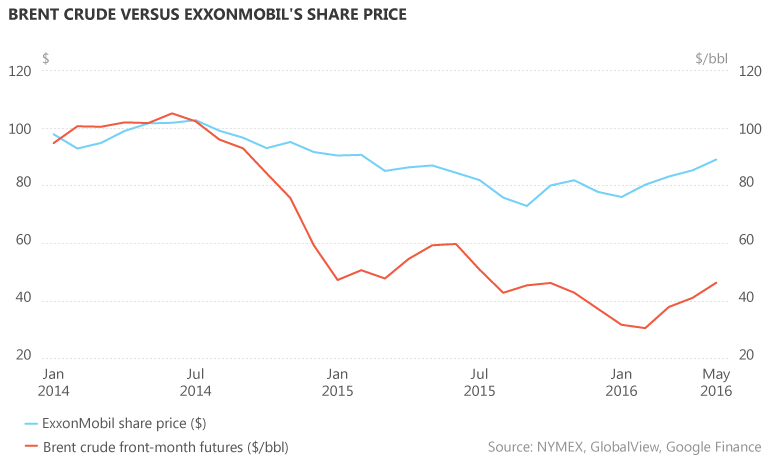 A Petrobras FPSO. Brazil is expected to make a fire sale of the company’s assets to boost its economy. (Petrobras)
A Petrobras FPSO. Brazil is expected to make a fire sale of the company’s assets to boost its economy. (Petrobras)
Brazil is preparing to sell off huge chunks of state-owned giant Petrobras to foreign investors as part of an emergency plan to shore up the country’s finances. The move may include shares in the company itself, Rio de Janeiro-based sources told Interfax Natural Gas Daily on Monday.
Brazilian authorities are preparing a roadshow to market various state-owned assets to foreign investors. The assets will include majority stakes in Petrobras’s fuel distribution unit as well as Rio de Janeiro-based utility Eletrobras Furnas and some facilities belonging to airport operator Infraero. There have also been reports the state could sell some of its shares in Petrobras itself. At the time of publication, Petrobras had not returned calls seeking comment.
Two sources close to the company confirmed to Interfax Natural Gas Daily on Monday that the state may sell Petrobras stock but retain its controlling share. Both sources wanted to remain anonymous because they did not have permission to speak to the media.
The Brazilian state directly owns 50.3% of the common shares in Petrobras, according to the company’s website. It also controls another 10% through the Brazilian Development Bank. Nearly 19% of Petrobras’s common shares trade as American Depositary Receipts on exchanges in the United States, which allows the company to tap lucrative North American equity markets.
"The reports of Petrobras selling stakes in businesses such as fuel distribution sound credible," Mario Marconini, a São Paulo-based managing director at Teneo Intelligence told Interfax Natural Gas Daily. "The new Chief Executive Pedro Parente needs some time to assess the specifics, but asset sales are one way to rectify the situation," he added.
"We already know the company is seeking to divest up to $15 billion of assets by end-2016," Thomaz Favaro, a São Paulo-based analyst for Control Risks, told Interfax Natural Gas Daily. "But it was a surprise to hear the government is considering selling shares in the company itself," he added.
Both experts agreed the state was unlikely to sell its controlling stake in the oil giant. "That would be very sensitive politically and require a deep and broad consensus. We are very far from that. If they proceed with selling shares, it will be a relatively minor part of the controlling stake," said Favaro.
Early days
"It’s probably too early for [privatisation]," said Marconini. "Parente will probably be conservative at first and seek to get Petrobras’s house in order. Anything that looks like full privatisation would probably be a step too far and come up against political opposition," he added.
Parente was formerly an executive at the Brazilian unit of US agribusiness giant Bunge and was most recently the chairman of Brazil’s stock market operator, BM&FBovespa. Parente replaced former Chief Executive Aldemir Bendine, who was criticised for failing to tackle Petrobras’s financial issues fast enough.
"We’ll probably see a change in management structure, directors and company board," said Favaro. "There is a question mark over Chief Financial Officer Ivan Monteiro, who is a well-respected figure and has been instrumental in the restructuring process since [former Petrobras Chief Executive] Maria das Graças Silva Foster left in 2015.
"We know Parente is talking to Monteiro to see if he is willing to stay. If he does, that will be a positive note," Favaro added.
Eye for detail
"Parente is extremely meticulous and detail-oriented, but he’s not a micro-manager. He will want a few weeks to study the business," said Marconini. "The company will seek to project a new image, but I’m not predicting anything drastic. Monteiro remaining in his position will mean some kind of continuity," he added.
Petrobras has achieved sales worth just over $2 billion as part of a $15.1 billion divestment target for 2015-2016. The company is marketing offshore oil and gas fields that should bring in an additional $2 billion, according to local press.
Experts have said the ousting of Brazilian President Dilma Rousseff will also speed up the opening of the country’s pre-salt sector to private companies. Brazil’s interim head of state Michel Temer is considered to be a more market-friendly candidate by the industry.
The liberalisation push may already be in motion. Brazilian authorities are set to publish rules allowing companies other than Petrobras to act as operators in the pre-salt. The rules would apparently allow such companies to operate pre-salt concessions following unitisation.
Unitisation is a process that simplifies ownership of highly prospective regions. It usually creates a single unit out of a reservoir extending across two or more existing licences with varying equity interests.
The licence owners then negotiate a stake in the new unit according to the potential of their asset and agree on the operator.








Talk to us
Natural Gas Daily welcomes your comments. Email us at [email protected].